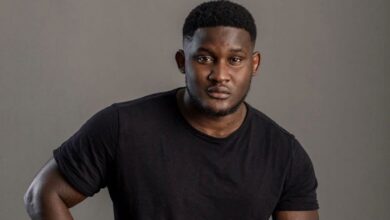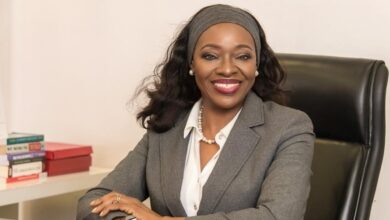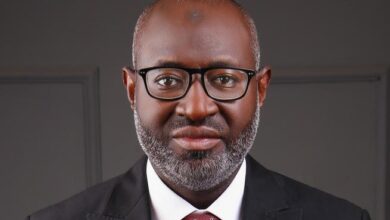The Lunch Hour, Yewande Sadiku, Executive Secretary/CEO Nigerian Investment Promotion Commission
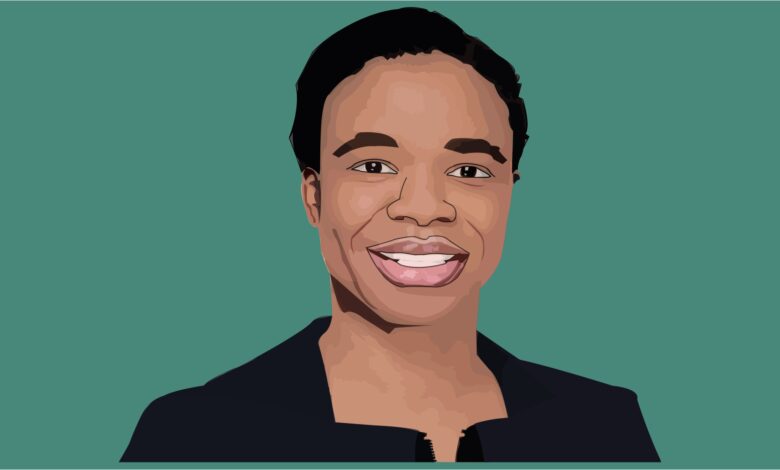
Yewande Sadiku is the Executive Secretary/CEO of Nigerian Investment Promotion Commission (“NIPC”); she assumed office in November 2016. Prior to her appointment, Yewande had a 23-year banking career; her last role was Executive Director for Stanbic IBTC’s Corporate and Investment Banking business, where she led a multi-disciplinary team to deliver business opportunities in Nigeria’s complex operating environment while managing key relationships with regulators and several of Nigeria’s leading corporate and multinational clients.
Yewande was the Executive Producer of ‘Half of a Yellow Sun’ (2014) and raised funding for the full feature film. She was awarded the Eisenhower Fellowship for International Leadership in May 2010. She studied Industrial Chemistry from the University of Benin and obtained a Master of Business Administration degree from the University of Warwick, United Kingdom in 1995.
“Someone told me recently that he thinks that I am scared because I don’t like doing many of the things people get away with in the public sector. My response was that I am not scared, I am just very careful and there’s a big difference between the two. People who are scared are afraid to take difficult decisions. People who are careful take the difficult decisions, after weighing the pros and cons”.
University, Science or Arts ?
I like to say that I have had an unusual career path. Although my father was a banker, I did not plan to be a banker. I loved the sciences and so I studied Industrial Chemistry. In my final year at the University of Benin, a roommate asked me to accompany her to the venue of an aptitude test for a bank. I sat outside the venue waiting for her for about 5 minutes and then for some reason, I decided to write the test myself.
The following day, I emerged as a successful candidate even though ironically, my roommate was unsuccessful. At the end of the process, they offered 6 of us jobs at Nigeria International Bank (now Citibank). When I graduated, I was posted to Lagos for my one-year national service and this allowed me to work as a youth corps member at the bank’s Lagos office. So that’s how it all started.
After two years at Citibank, I went to University of Warwick in the United Kingdom for my MBA. When I was done, I got a few offers to work at places like Total and Arthur Andersen. But my brother, who was also a banker, suggested that I should consider a relatively new bank called IBTC. His pitch to me was that they gave you three people’s work but paid you two people’s salary! I found the challenge appealing.
He sent my CV to IBTC and they reached out. I went through the recruitment process and I was offered a job in the corporate finance department. This was a great fit for me as I really enjoyed the subject during my MBA program. I ended up working for that bank for 20 years, 9 months and 9 days.
What is your biggest lesson from University?
I got into university at 16. I think I was very young. Sadly, it was quite a traumatic experience for me so I have literally blocked out a large chunk of my memory of university. So, it is difficult for me to answer that question. I would rather not speak about the trauma I experienced.
If you had the opportunity to go back in time and speak to a young Yewande Sadiku, what would be the top career tip you would share with her?
My top tip would be about something that I practice consistently: hardwork really pays. However, I would add that it is important to live a little. Relationships are important and it is valuable to build relationships across age groups, cultures and social strata. As a young graduate, I did not appreciate the value of cultivating very successful people as mentors. It is so important to have positive examples in your life and career. Learn as much as you can from mentor figures even if you don’t actually know them. I was fortunate to have had accidental mentors but I will advise young people to consciously seek out mentors that can offer useful advice over the course of their careers. It makes such a big difference in any endeavour.
“I was fortunate to have had accidental mentors but I will advise young people to consciously seek out mentors that can offer useful advice over the course of their careers. It makes such a big difference in any endeavour”.
Talk about your first job and the main thing you learnt as a young employee.
At my first job at NIB, I was not treated as a youth corps member. I learnt that hard work really doesn’t kill you but you still have to find a way to balance work and family. Without a doubt, you will drop some balls along the way but you have to be aware enough to determine which balls you cannot afford to drop. Even though I have had an engaging and demanding career, I have tried not to bring my work title home. When at home, I have endeavored to be a wife, mother or sister.
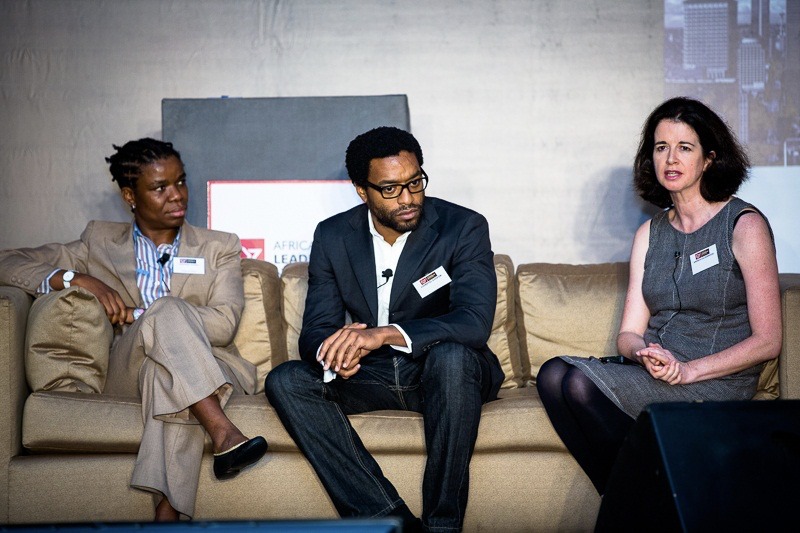

Things that you have learnt in your career that are not taught in the classroom?
It is a longer list than what I have learned in the classroom. But there’s something I read and I believe. It says that only 10 percent of what you learn in a formal classroom setting defines what you are going to be. Twenty percent is defined by the people you work with and 70 percent is defined by the journey that you actually walked.
If you have always worked with people at the top of their game, you may not realise how much of your success is tied to the quality of the people, tools and support that you had at your disposal. I have come to appreciate this more in my public sector role.
Also Read: The Lunch Hour – Andrew Alli, CEO & Partner at Southbridge Group
I have also learnt the value of volunteering for work and allowing yourself to be volunteered for work. Such opportunities usually stretch your capacity and expand your networks, but they always masquerade as work! Another thing that I have learned is the value of teaching others because it has a way of freeing you up to learn new things, shaping your reputation and building valuable relationships.
A question about taking a break to do something new or different. What did you learn from producing the film Half of a Yellow Sun?
The film industry clearly has considerable social education and cultural value, but its economic potential cannot be fully realized without better quality professional advice. Sadly, as much as the industry needs professional advice to truly develop, most operators cannot afford the quality of professional advice required to make a material difference. I believe very strongly in the commercial potential of the industry, and will like to play an active role in developing it. Who knows what the future holds?
Who was the greater influence, your Mum or your dad?
I like to say that my mother taught me the value of “suffering”. That is what a lot of things that she made us do felt like at the time, but she was teaching me the importance of grit. For example, even though we had someone we hired to do the laundry, my mother was the type that will insist that I washed my clothes myself. Such experiences instilled a discipline to not expect life to be easy.
My father showed me the value of being particular about the quality of your work. This has been particularly invaluable in my work in the public sector. Someone told me recently that he thinks that I am scared because I don’t like doing many of the things people get away with in the public sector. My response was that I am not scared, I am just very careful and there’s a big difference between the two. People who are scared are afraid to take difficult decisions. People who are careful take the difficult decisions, after weighing the pros and cons.
“I like to say that my mother taught me the value of “suffering”. That is what a lot of things that she made us do felt like at the time, but she was teaching me the importance of grit. For example, even though we had someone we hired to do the laundry, my mother was the type that will insist that I washed my clothes myself”.
What type of music do you like?
I am not really a music person. I just select “Naija mix” on Apple music and I can be considered “current”. However, Micheal Franks is my favourite artiste of all time. I also like Halleluyah by Pentatonix and the Christian song “Amazing Grace”. The lyrics have always resonated with me.
Who are your favourite authors?
I have come to love audio books and I listen to a lot during my morning walks. Increasingly, I find I love books on psychology, self-improvement and autobiographies. Steve Jobs’ story was amazing. I am currently listening to “The School of Life” by Alain de Botton. Before that, I listened to “The Power of your Sub-subconscious Mind” by Joseph Murphy. Audio books are it for me as I hardly have the time to just sit and read books the traditional way.
>>>You Are Reading: The Lunch Hour, Yewande Sadiku, Executive Secretary/CEO Nigerian Investment Promotion Commission
Who’s your best boss ever and why?
What has been the biggest lesson that you have learnt as a boss?
I was fortunate that I had bosses who did not compete with me. So as I boss, I extend the same courtesy to those who work with me. Also, I think it’s important to treat people on the basis of what you think they are capable of delivering in the future, whether they like it or not. Push people towards their potential.
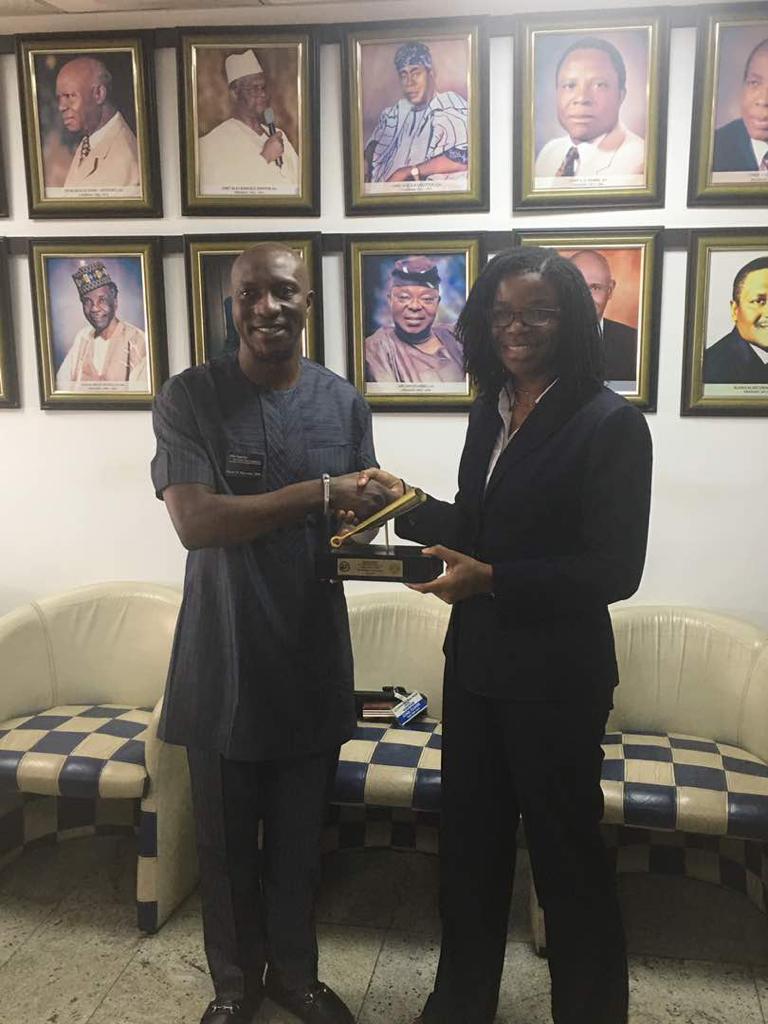

The spread of Covid-19 has inflicted a huge burden on society and the economy. What in your view has been the biggest lesson from this pandemic?
First, we should be aware that everyone will save themselves first even though we have a responsibility to each other. In Africa, we behave as though somehow the world will wait for us, so we take our time to take the right decisions for the public good. I think that it’s high time that we realised that we cannot afford to not fulfil our potential because we will have to bear the consequences of inaction in times of crisis as we have found with the pandemic. We cannot rely on more developed countries for help. We have to take responsibility to create the future we want.
Things you value the most in a candidate when hiring?
I only want to hire people that are smarter than me so that is always the first thing I look for. It is so much easier to work with such people and they actually make you look good and keep you on your toes. Second, the quality of character matters. Things like integrity matter a lot. A lack of integrity can cause so much harm and mischief.
Also Read: The Lunch Hour- Angela Emuwa, Chairman, Punch Nigeria Limited
Biggest lesson from working in the public sector?
First, I think I grossly underestimated the amount of work needed to set Nigeria back on course for greatness. We have a lot of work to do, because of just how deep the rot is. However, I have also learnt that, in a strange way, it is also very easy to get us back on course, with the right quality of visionary leadership. If you set the tone about what is acceptable, everyone will fall in line. It will take unwavering commitment to do the work, because the rot is very deep, but it is possible.
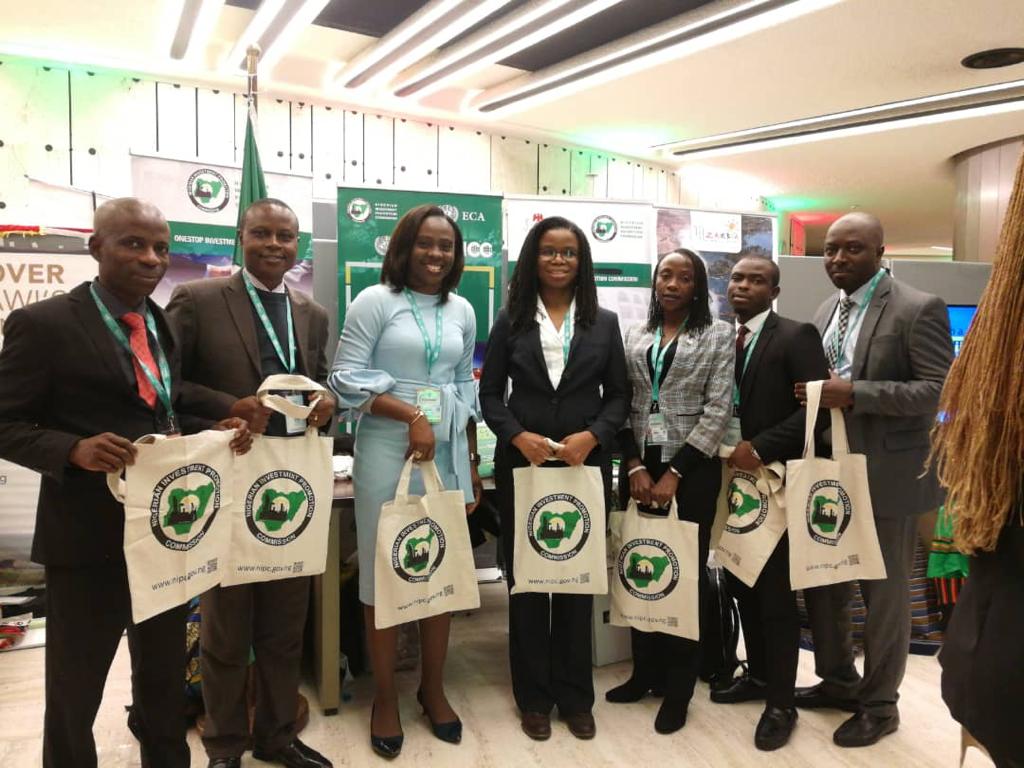

What’s your favourite place to go in Nigeria and abroad?
I will love to visit the highest point in Nigeria, a place called Chappal Waddi in Taraba State near the border with Cameroun. Abroad, I love a town in Hungary called Balatonfured, where my spirit felt a special sense of peace; there was just something special about the town. I also love an ancient pilgrim route in Spain called the Camino de Santiago. It is a particularly picturesque part of the country, where life is incredibly simple and the food is great. It is also a spiritual journey that has a special meaning to me.
Interest in sports?
I love to swim and I like to watch tennis.
Best use of money ever for you
I appreciate the investment that we have made in the education of our children because I see how their minds have been stimulated by the experience. I also value the experiences that I have paid for over the years. I have tried everything from bungee jumping, water skiing, sky diving, parasailing, scuba diving the Great Barrier Reef, climbing the Mount Kilimanjaro. Those experiences have been invaluable and confirm that the best things in life are not necessarily very expensive things.
>>>You Are Reading: The Lunch Hour, Yewande Sadiku, Executive Secretary/CEO Nigerian Investment Promotion Commission
Who will you like to spend a holiday with?
I really enjoy the company of my nuclear and extended family. So time with my nuclear family and my siblings and parents are always fabulous. If you could throw in Nelson Mandela into the mix, that would be great.
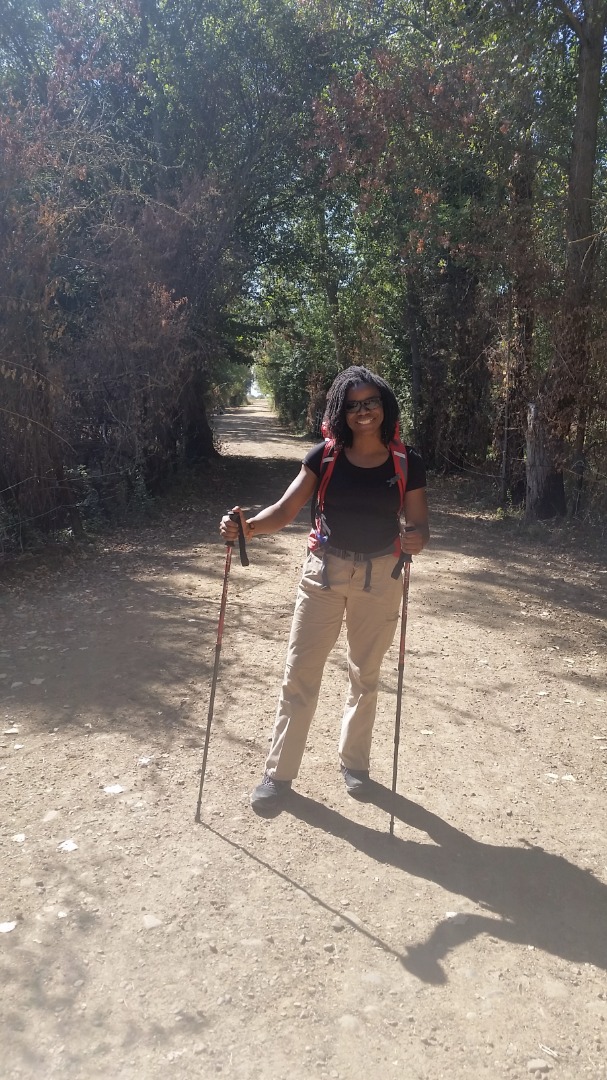

Where do you see Nigeria in the next decade?
It’s really a function of the quality of the leadership we have and the tone that is set at the highest level. I think Nigeria will do well with a leader with a combination of several values. To illustrate, I will say someone with the integrity of Atedo Peterside because of his ability to take difficult decisions and challenge young people to do more. We also need someone with the aggression of Aliko Dangote and his ability to dream bigger than the present possibilities. We also need someone with the vision and tolerance of Nelson Mandela and his ability to accommodate different voices. We need someone with these skills and the courage to follow through on what needs to be done. With that, in a decade, I think we can be firmly on the course to become one of the leading economies in the world. Conversely, if we have the wrong type of leader, I fear that things could get much worse and Nigeria may be increasing the population of refugees in the world.
The Lunch Hour Interview was over lunch at the Jade Palace in Victoria Island on the 2nd of July 2021.



